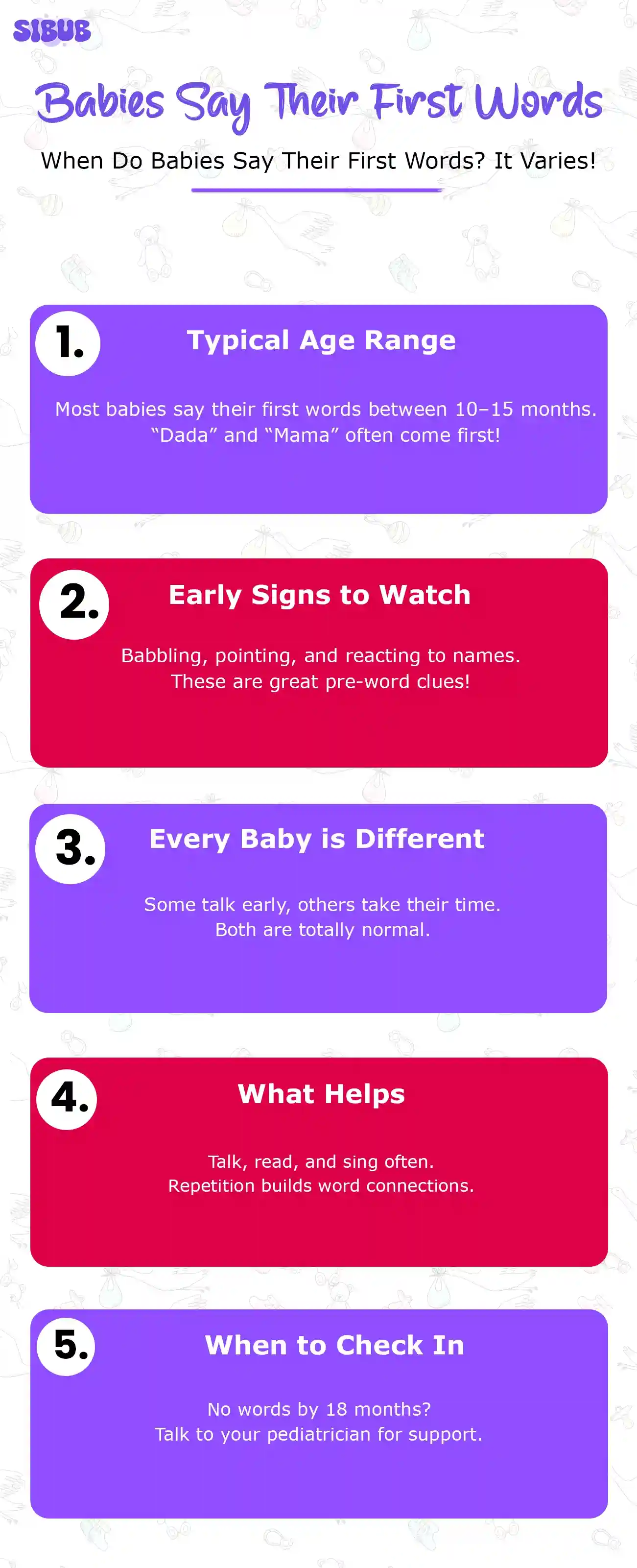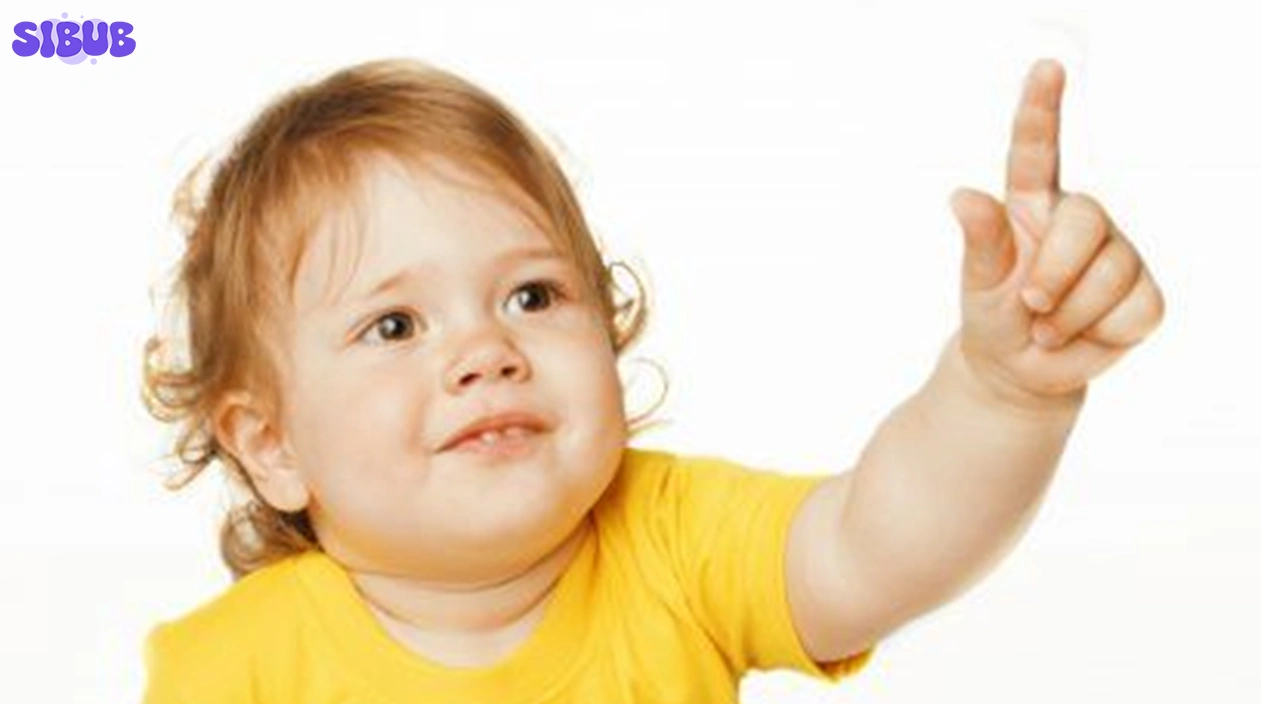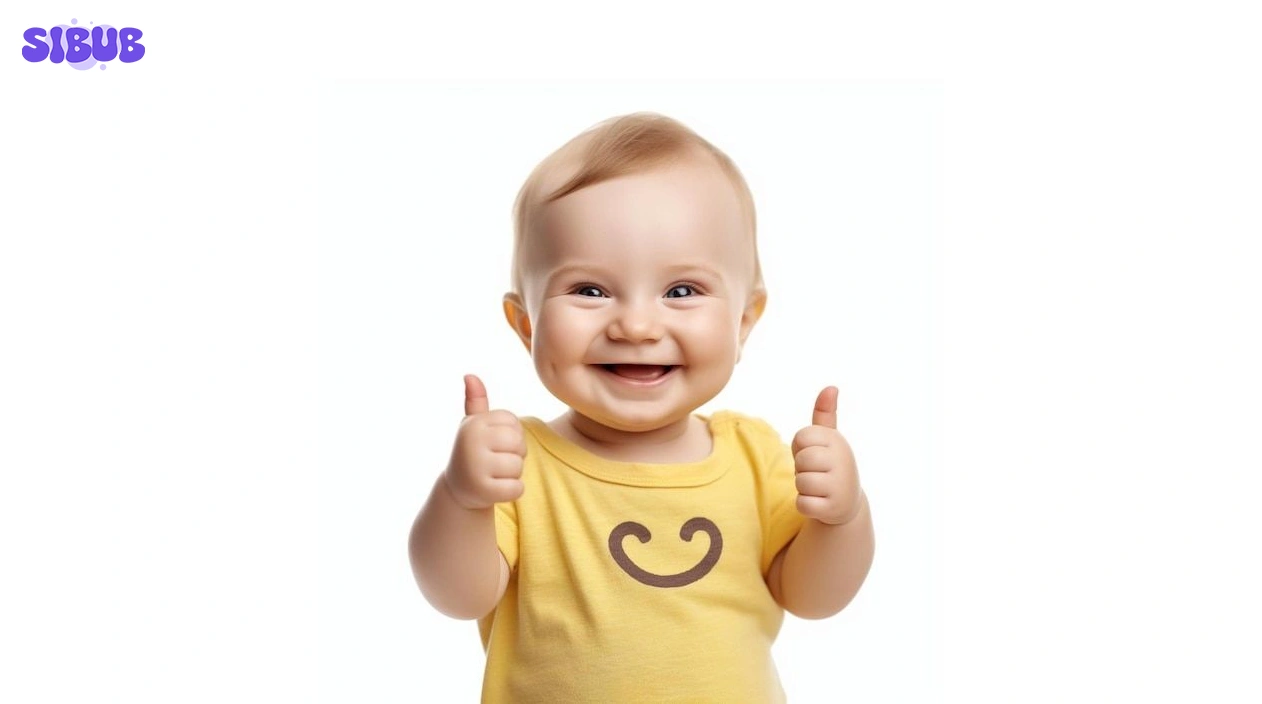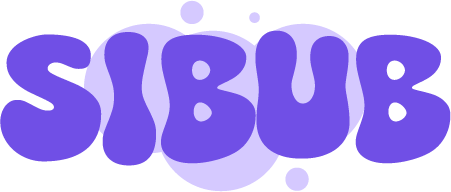It is no doubt one of the most exciting moments for any parent to hear their baby’s first words. It’s a milestone that makes all their sleepless nights and diaper changes worth it.
But many parents with babies wonder: When do babies say their first word?
The answer is: It varies.
Just like walking or teething, talking doesn’t follow a strict schedule. Every child develops differently, and that’s completely normal.
Some little ones may chatter early, while others take their time. In this blog, we’ll walk you through the typical timeline of baby first words, what to expect at different ages, and how you can help your child develop their language skills naturally.
From Cooing to Talking: A Month-by-Month Breakdown
Let’s break down the stages that lead up to your baby’s first real words. Understanding how language builds step by step can ease a lot of worry.
Explore: How to Play Charades: Rules for Kids
0–6 Months: It All Starts With Sounds
Even though your newborn’s first words are still a long way off, they’re already listening and learning.
- Newborns start with cries to express needs.
- By 2 months, they make vowel sounds like “oo,” “ah,” and “ee.”
- They begin associating sounds with their sources (like a bark with the dog).
- Around 4 weeks, babies can tell the difference between similar sounds like “ma” and “na.”
Fun fact: At around 2 months, babies watch your lips and match certain sounds with movements. It’s their first step in learning to talk!

4–6 Months: Babbling Begins
Now things get a bit noisier, your baby begins babbling!
- Expect to hear consonant sounds like “g,” “k,” “m,” and “b.”
- Your baby may begin to recognize their name around 4.5 months.
- By 6 months, they might not know it refers to them yet, but it sounds important.
Can babies have their first word at 6 months?
It’s rare, but possible. Some babies might say something like “mama” or “dada” around this age, but usually without true meaning behind it yet. These are often considered pre-words or proto-words; they sound right but aren’t always used correctly.
7–12 Months: First Real Words Appear
Here’s where things get really exciting.
- Babbling starts to sound more like real words.
- By 9 months, babies understand simple gestures and sounds.
- At around 10 months, they start combining syllables like “gaga” or “baba.”
- Around 12 months is the magic number, this is when babies usually say their first word.
Common first words:
- “Mama”
- “Dada”
- “Hi” or “Bye”
- Simple nouns like “doggy,” “ball,” or “milk”
Milestone alert: Your baby might finally say their first real word around their first birthday!
Learn More: 6 Signs Your Child Needs Help – A Guide to Therapy Kids
Baby First Words: What They Can Understand
Understanding comes before speaking.
- By 12 months, babies recognize common words like “bottle” or “blanket.”
- They react to tones. “No!” or “Stop!” means something.
- They watch your face and mimic your expressions and tones.

13–18 Months: Vocabulary Slowly Grows
After the first word, many parents expect a flood of language. But it usually grows little by little.
- Toddlers might add a few words per month.
- Nouns come first, then verbs and adjectives.
- They might ask for things with one word—“Juice?” or “Up?”
- Favorite word at this stage? “No!”
This is a great time to speak clearly and name everything around them; shoes, spoon, car, etc.
19–24 Months: The “Word Explosion” Stage
Wondering when do kids say their first wordand then just start talking non-stop? That often happens around 19 to 20 months.
- Vocabulary can grow by 8–10 words per day!
- Two-word phrases begin: “Want milk,” “Go park”
- They might use made-up words and overgeneralize (“Ball!” for anything round)
Don’t worry about funny mistakes, language is still forming. Just model the correct version in response.
25–30 Months: Sentences Start to Form
Your toddler becomes a little chatterbox.
- They start asking lots of questions: “What?” “Where?” “Why?”
- They use short sentences: “Me want cookie” or “No like bath.”
- New sounds like “th” and “r” start forming with practice.
Things you can do:
- Play rhyming games
- Repeat what they say with correct grammar
- Read picture books daily
3 Years: Expressing Full Thoughts
By now, your toddler is talking in full, clear phrases.
- They can tell simple stories using a few sentences.
- Sentences may include about 300 words in total.
- You’ll hear things like, “Daddy go work” or “I no want nap.”
They also understand short stories and follow two-step instructions like “Get your shoes and bring them here.”
4–5 Years: Full Conversations and Imagination
Before they reach kindergarten, kids become fluent speakers of their own little world.
- Sentences get longer and more descriptive.
- They use adjectives, prepositions, and even humor (like knock-knock jokes).
- You may notice a vocabulary explosion; up to 2,500 words expressed and 14,000 understood.
This is when children really express who they are, sharing dreams, ideas, and emotions through language.

Check this out: Develop Growth Mindset for Kids – Simple Steps That Work
Helping Your Child Say Their First Word
Here’s what you can do to support your child’s journey toward speaking.
Tips for Encouraging Baby First Words:
- Talk often: Describe everything you do (“Now we’re washing your hands!”)
- Read together: Picture books are great for building vocabulary.
- Sing songs: Nursery rhymes help with rhythm and word patterns.
- Name things: Always label objects in their world.
- Listen and respond: React to their sounds, babbles, and words.
Avoid these common mistakes:
- Don’t correct harshly. If they say “I goed park,” you can gently respond with “You went to the park? That’s awesome!”
- Don’t rely too much on screens. Real conversations teach language best.
When to Seek Help
While variations in development are normal, sometimes early support is helpful.
Watch for these signs:
- No babbling by 6 months
- No clear words by 18 months
- Doesn’t respond to name or simple requests
- Stuttering, lisp, or unclear speech past age 3
Always talk to a pediatrician or speech-language therapist if you have concerns. Early intervention makes a big difference.
So, When Does a Baby Say Their First Word?
To wrap it up, when do infants say their first word? For most babies, around 12 months is typical. But some may start earlier or later. Language development is a journey, not a race.
Whether your child says “mama” at 10 months or 16 months, what matters most is the loving, responsive environment you give them to learn and grow.
Remember:
- Every child develops differently
- Language builds from listening and interaction
- Celebrate every new sound, word, and phrase!
